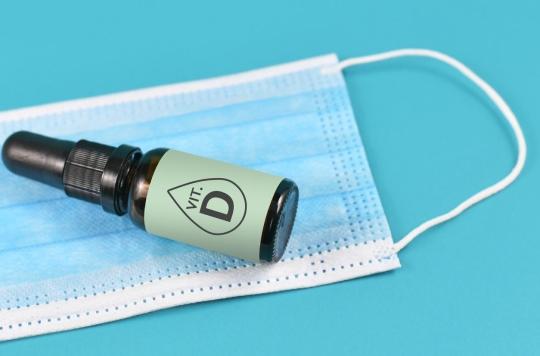People hospitalized for Covid-19 and with vitamin D deficiency are at higher risk of developing a severe form of the disease.

- Vitamin D facilitates the absorption of calcium and phosphorus for better bone mineralization.
- Vitamin D is produced under the effect of UV rays in the skin.
- We speak of vitamin D deficiency when the concentration drops below 10-12 nanograms per ml of blood
Can vitamin D supplementation limit the risk of developing a severe form of Covid-19 and thus reduce the risk of mortality?
Since the start of the pandemic, many studies have been carried out on the supposed positive effects of vitamin D on Covid-19, but the results are far from homogeneous. While many suggested that vitamin D reduced the risk of contracting Covid-19, or developing a severe form of the disease, other studies have tempered this enthusiasm.
Yet, according to a new Israeli study published in PLOS ONEthere is indeed a correlation between vitamin D deficiency before infection and increased disease severity and mortality in patients hospitalized with Covid-19.
Vitamin D deficiency increases the risk of death tenfold
The new work, led by researchers at Bar-Ilan University’s Azrieli School of Medicine in Safed, Israel, and the Galilee Medical Center in Nahariya, Israel, is the first to analyze vitamin D levels before infection. , which allows for a more accurate assessment. This is because during hospitalization, where levels may be lower due to viral illness.
The researchers studied the records of 1,176 patients admitted between April 2020 and February 2021 for Covid-19 infection. All had had their vitamin D levels measured two weeks to two years prior to infection.
Patients with vitamin D deficiency (less than 20 ng/mL) were 14 times more likely to have severe or critical disease than those with levels above 40 ng/mL.
But what is most striking is that the mortality in patients with sufficient vitamin D levels was 2.3%, compared to 25.6% in the group with vitamin D deficiency.
“Our results suggest that it is advisable to maintain normal levels of vitamin D. This will be beneficial for people who contract the virus, points out Dr. Amiel Dror, who led the study. There is a clear consensus in favor of vitamin D supplementation on a regular basis, as advised by local health authorities as well as world health organizations.”
According to Dr. Amir Bashkin, endocrinologist and co-author of the current study, “this is especially true for the Covid-19 pandemic, when an adequate amount of vitamin D has an added benefit for the right immune response to respiratory diseases”.
“This study contributes to an evolving body of evidence suggesting that a patient’s history of vitamin D deficiency is a predictive risk factor associated with poorer clinical course of Covid-19 disease and mortality”continues Professor Michael Edelstein, also co-author. “It is still unclear why some people suffer severe consequences from Covid-19 infection, while others do not. Our finding adds a new dimension to solving this puzzle.”he concludes.
















